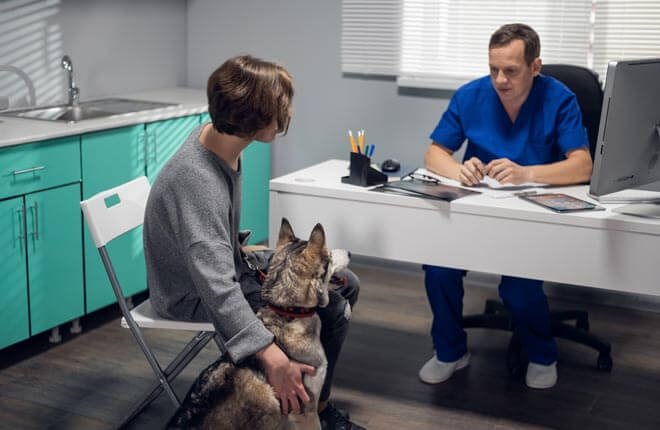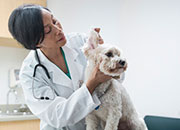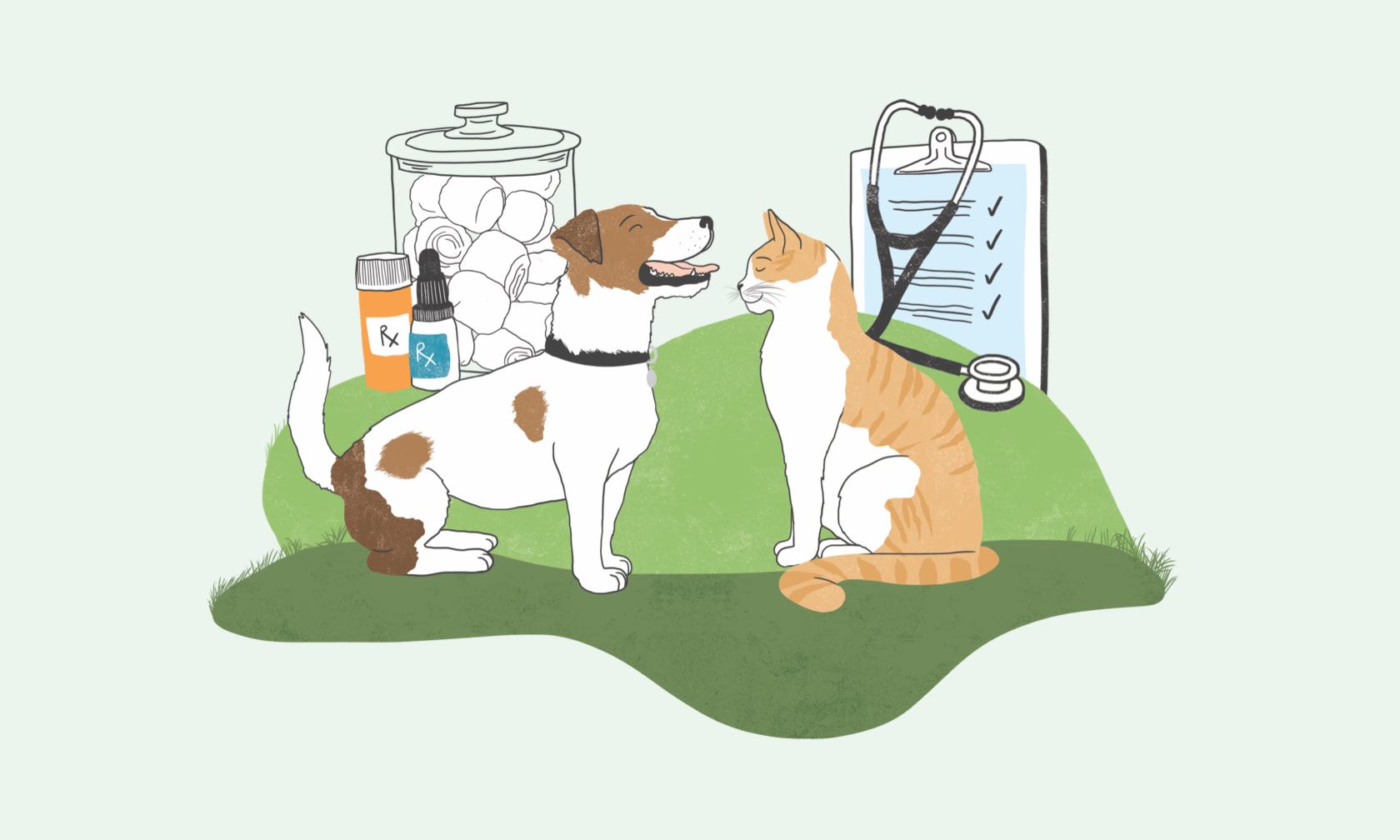Just like doctors with their human patients, veterinarians need all the facts to make a proper diagnosis, avoid drug interactions or allergic reactions, and factor in everything in your pet’s health history. Whether you’re visiting your regular veterinarian, taking your pet for their first visit to a new clinic, or preparing for a specialist appointment or procedure, it’s important to come prepared. Here’s what to bring to your pet’s next veterinary appointment.

What to Bring to Visit Your Current Veterinarian
If you’re heading to a veterinary appointment in the next few days, it helps to plan ahead. Here are a few things you can take care of before your next appointment with your current veterinarian:
- Medications. Make a list or take photos of all medications and supplements your pet is currently taking (prescription and over-the-counter), as well as any they’ve taken recently. Be sure to include the dosage and frequency. Don’t forget their flea/tick/heartworm prevention.
- A list of questions. Jot down any questions you may have for your veterinarian. You’ll be surprised how many pop into your head over the days leading up to your appointment but then fly right out of your head when the time comes to ask.
- Food list. Take a photo or write down exactly what food and treats your pet eats.
- Videos. If your pet is doing something new or different that has you wondering if it might be an issue, take a video on your smartphone. For example, if your cat is more hesitant or slower to go up or down stairs, take a video of them on or around the stairs. This can help your veterinarian see behaviors and movements that your pet might not show in the veterinary clinic.
What to Bring to See A New Veterinarian or Specialist
If you’re off to an appointment with a new veterinary clinic or specialist, you’ll need everything above, plus a few extras, like:
- Records. Request that your previous veterinary clinic sends the new clinic a copy of your pet’s records. This should include any records you provided upfront from past clinics as well as all visits, diagnoses, prescriptions, treatments, and test results from your time with this clinic. Sending these in advance allows your new veterinarian or specialist to get up-to-speed on your pet’s history before your visit.
- Email update. You might send an email to your new veterinarian giving them a little background on the reason for your visit if it’s something more involved than an annual check-up.
- Procedure history. It’s also helpful to include a list of your pet’s surgeries and procedures before your appointment. Throw in the contact information for your previous veterinarian as well, in case the new clinic needs to reach out for details.
What to Bring to All Veterinary Appointments
On the day of your appointment, take these with you:
- Medications. That list (or photos) of medications and supplements is important. And make a note of the last time they were given, particularly if your pet is having testing done during their appointment or is being hospitalized.
- Food and treats. Note the brand/type of food and treats you’re feeding your dog or cat, along with the amount. It doesn’t hurt to snap a photo of the ingredient list, too, particularly if your pet is having gastrointestinal issues or you have questions about nutrition.
- List of questions. Don’t forget your trusty list of questions, so you don’t overlook anything during your appointment.
- Issue-specific history. If your visit is for an ongoing health issue, think about your pet’s history with that issue and make a note of what worked well, what didn’t, and how the issue has changed over time, etc. Sharing this information, especially with a new veterinarian, can save time and money, helping them narrow the focus of the visit and their treatment recommendations.
What to Bring to an Emergency Veterinary Clinic Visit
No one wants to be in this situation, but there may be times you have to make a rush visit the pet E.R. In this case, it’s like a first-time veterinary visit because they have no history on your pet, and you will often not have the opportunity to send over medical records, make your lists, or send an introductory email beforehand. There are a few things you can do, however, to prepare for emergency medical visits.
- Medications. Always have that list (or photos) of your pet’s medications and supplements readily available. That’s one of the most important pieces of information your E.R. veterinary team will need. Again, don’t forget the dosage and the last time they were given.
- Medical records. It’s always a good idea to keep a file of your pet’s medical records at home for situations just like this. You can always grab a hard copy, send them over while your pet is being treated, or pull them up to fact-check your own recollection of your pet’s history. This is especially true if your pet is going through a serious or chronic medical condition more likely to send you to the E.R. Have those records easily accessible, so they have the complete picture of your cat or dog’s issue, past treatments, previous test results, and so on. This can be invaluable for effective emergency care.
- Pet insurance information. If you have pet insurance, you may want to have your pet’s identification number handy. Some insurance companies will provide preapprovals for emergency care. You may need to get in touch with them directly from the clinic or provide the I.D. number to the E.R. billing department.
ZPC-01321R1





